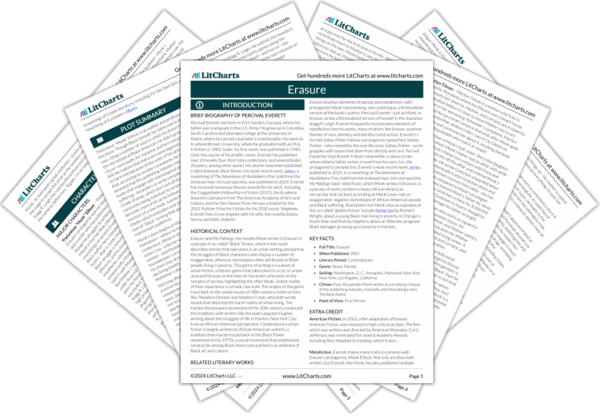Monk, in approaching the stage to accept the award as Stagg, becomes “free of [his] illusions,” bridging the distance between his Monk persona and his Stagg persona, signaling that he has finally abandoned his previously held belief that he is above artistic compromise or that he can reject the concept of race and operate outside of unjust systems that enforce it. His declaration of “Egads, I’m on television” mirrors the final words of Go, signaling Monk’s surrender to the fate a society governed by systemic racism has forced on him. He, like Go, will play the role society has carved out for him, limiting and demeaning as it may be.


